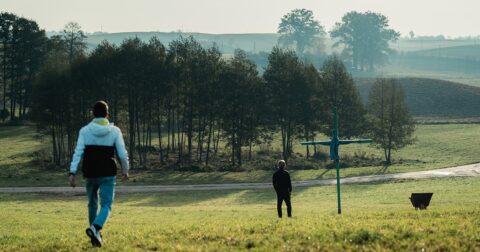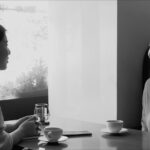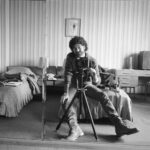Unrelated Prelude to the Main Theme of Today’s Article
1992, Tbilisi
In Bloom (Nana Ekvtimishvili and Simon Groß, 2013, below), set against the backdrop of the war in Abkhazia, tells the story of two teenage girls growing up the hard way. With a touch of Elena Ferrante’s Neapolitan novels, male chauvinism is pushed back against, hard, but there’s only so far you can go in such a tough and patriarchal society. Dads are either absent — in jail or dead — or drunk. School seems to be a formality, a place you go to until marriage finally defines you as a wife, not as a woman. Don’t want to get married? You’ll get kidnapped, caucasian style. Meanwhile, lines for bread stretch around the block; only army guys are allowed to completely jump the queue.
The film plays as part of a special Women in Socialism series. The Soviet Union may have been a time of parallel progression (women actually gaining more important roles in society while the economy regressed) but the post-Soviet world reveals that the men still have an upper hand. In such a violent world, it seems that the only way to assert any power is by packing some heat, the film using a Chekov gun trope to fascinating effect.
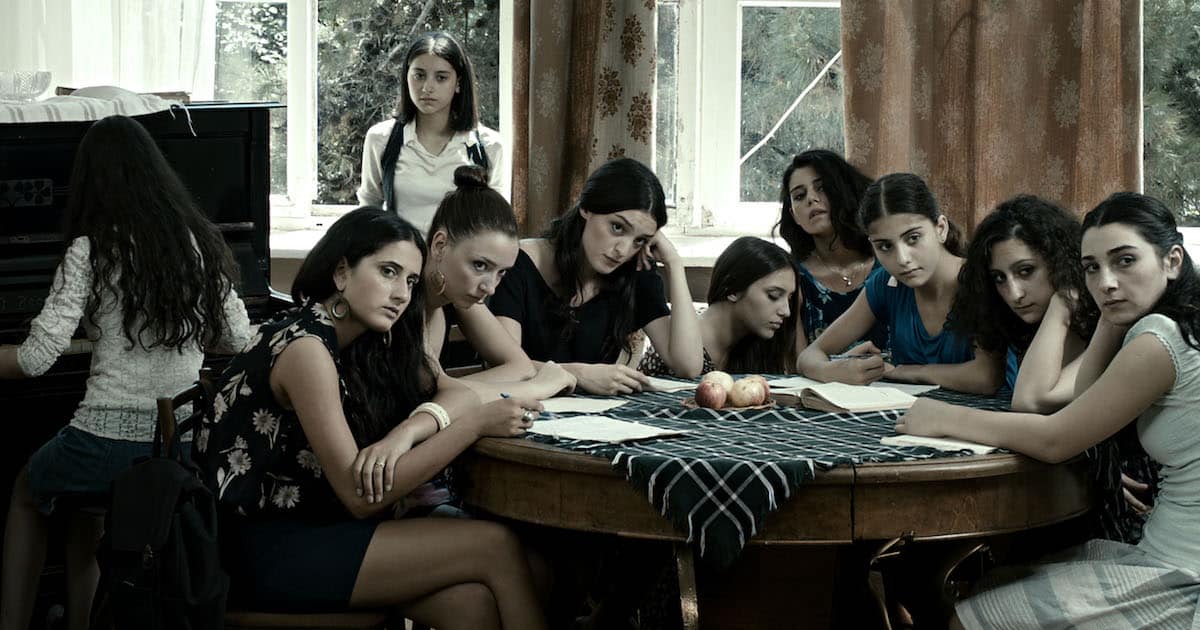
Will the gun go off? Or will something more interesting happen? The obvious answer lingers throughout the entire runtime, but directors Ekvtimishvili and Groß are for more interested in the symbolic rather than literal potential, resulting in a rigorous, heartfelt exploration of gender roles.
The film shares a cinematographer with yesterday’s Miracle in Romanian genius Oleg Mutu, one of the best magicians in one-take scenes currently working today. Two scenes in particular stand-out; the first, a dynamic, bustling classroom, filled with fighting, petty sniping and an authoritarian teacher, the scene slowly rising towards revolution; the second, a wedding dance scene that mixes steadfast expression with a sense of world-weariness. While lacking the iron-clad precision of Miracle, the liveliness of the cinematography is yet another example of the way subtle and layered camerawork and blocking can transform the tenor of a scene. I genuinely think Mutu (best known for his work with Cristi Puiu and Sergei Losnitsa) deserves his own dedicated retrospective.
And now to the main event:
The Power of Poland
Along with a screener of Bread and Salt (Damian Kocur, 2022) I watched last week, half of my Cottbus Film Festival films were from Germany’s largest Eastern neighbour. It makes sense. Cottbus is closer to the Polish border than Berlin. The remaining three Polish films show off the skilled dramaturgy of Polish cinema, the brilliance of the Polish Film Institute in finding good projects and developing scripts, the way that stories are toughened up, and how unafraid they are of shying away from the harsher elements of Polish culture.
Polskie Horyzonty screening Sonata (Bartosz Blaschke, 2021) is based on the true story of Grzegorz Płonka (Michal Sikorski), who despite being born deaf, became a relatively famous pianist. A feel-good film that’s already provided a hit in Polish cinemas since March, its triumph-against-adversity story gives it the potential for some international success.
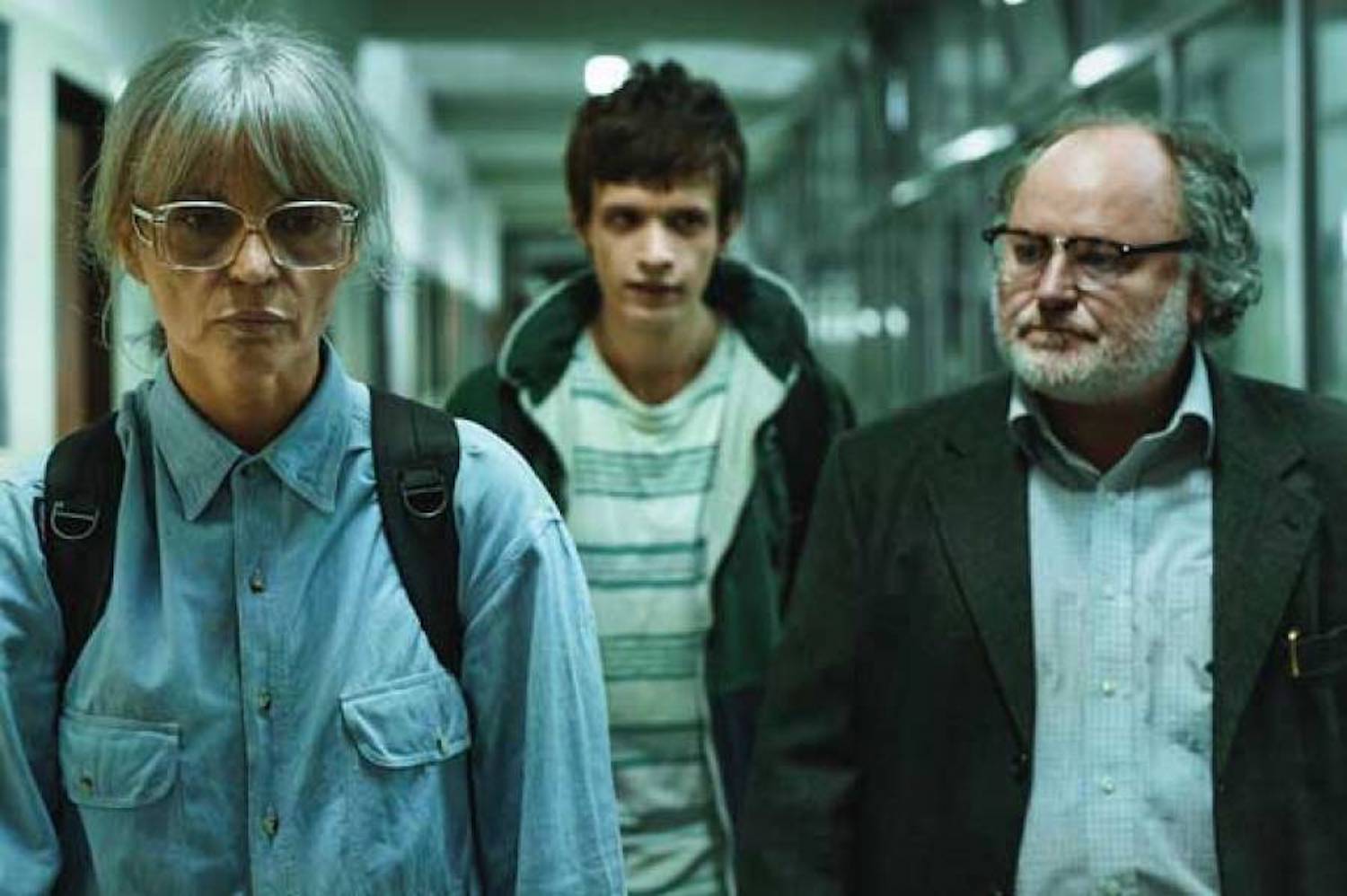
He is a developmentally challenged young man who his parents have just learned to live with. He barely responds to anything they say and cannot talk, making them believe that he is autistic. The reality is that he has been misdiagnosed his entire life. He is not autistic but deaf. Once his hearing aid has been installed, we learn that he is preternaturally gifted at the piano. We all know that he will succeed and play a concert at the end — in a way not dissimilar to Oscar winner CODA (Sian Heder, 2021) — but it’s the many roadblocks he and his family encounter and conquer that provide this film’s narrative momentum and social importance.
There is a certain lump-in-your-throat feeling that rises when I watch people just trying to do the best for someone who is so close to realising their potential but has expectations and the system against them. From teachers to neighbours to parents (all superbly acted across the board), it’s hard not to get invested in the people who are simply trying as hard as possible for our hero Grzegorz to succeed.
What I liked is, like Daniel Day-Lewis’ character in the My Left Foot (Jim Sheridan, 1989), his disability doesn’t make him a saint. In fact, he’s still an asshole despite his impairment. This complexity in characterisation makes him more interesting, more likeable, and actually made me root for him more, not less. But the clichés of this type of genre are hard to get around, meaning that perhaps the disabled-genius genre needs something more than a “proving-them-all-wrong-story”. Perhaps their lives after they have already succeeded?
I also wondered about the choice of Beethoven’s Moonlight Sonata, which anchors the film. Isn’t it a rather easy piano piece to get right? But then I realised it’s more about the interpretation than the actual technical execution, both of which are on-point here. Sonata is technically adroit and plays the music well, but just like Beethoven’s piece, its not that hard to get right in the first place.
Which brings us back to Competition Entry Bread and Salt (below), which I watched via an online screener last week. It played at Antalya Film Festival, I missed it, then a link landed in my lap. It’s funny because it is also about a pianist, and it ends in more or less the same way — with the complete recital of a piano piece. But Bread and Salt is by far the more ambivalent film, telling the story of a piano prodigy (Tymoteusz Bies) returning to his childhood town from Warsaw, navigating both his complex feelings to the place that he left behind as well as the local inhabitant’s racist views towards the newly-arrived Arabs in the kebab shop.
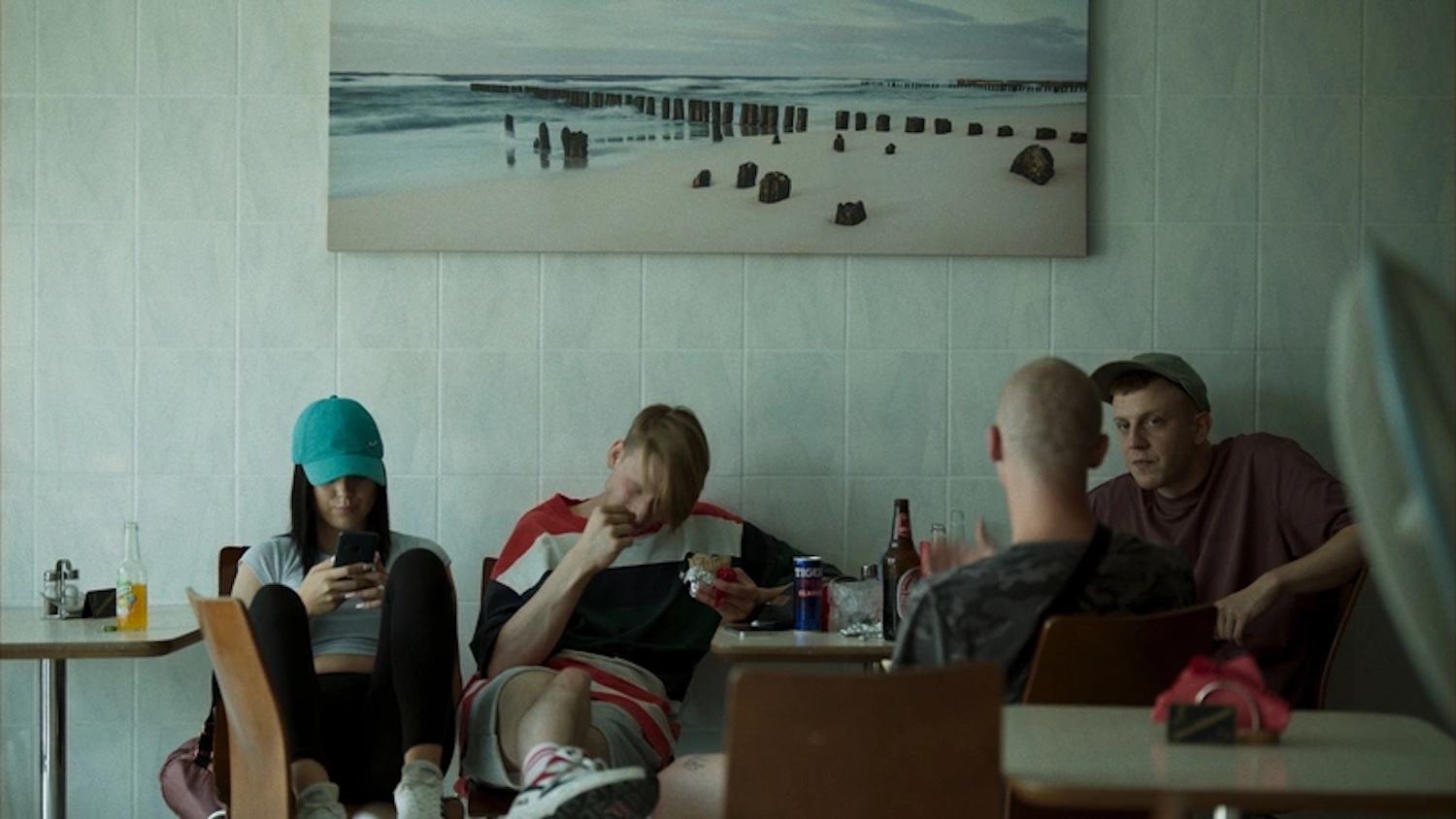
With painting-like frames, a slow-burn atmosphere and a great recreation of the languorousness of those summer days with basically nothing to do except drink beer in the kebab shop, Bread and Salt has to navigate both coming-of-age tropes with a more serious exploration of small-town racism. I don’t think the two elements meshed together entirely successfully, but the push and pull between these two very different types of outsiders made for a nonetheless potent criticism of insularity and small-mindedness.
Talking of Polish phobias, we end the festival with another Polskie Horyzonty screening: All Our Fears (Lukasz Gutt and Lukasz Ronduda, 2021, below and feature) an important LGBTQI+ drama, but also an unconvincing one. Telling the true story of a gay farmer named Daniel (Dawid Ogrodnik), who, in the wake of a lesbian friend’s death, attempts to stage a Stations of the Cross for her. While undeniably the moral centre of the film is true and correct, this drama lacked any sense of rising tension or gripping scenes to get me invested in the story.
Daniel — decked in the same LGBTQI+ cross-stitch-adorned tracksuit almost throughout the entire film — lives in an area that seems almost forgotten by both the Polish government and the EU; early on in the film he takes part in a farmer’s protest to overturn the ban on boar hunting. Boars spread disease you see, even if they have cute little snouts and cute tiny toes. But there is an even more fatal disease spreading throughout these villages: homophobia. Tired of taunts by her neighbours, his friend commits suicide. This makes her twice the sinner: first for being gay, secondly for taking her own life. It’s up to Daniel to honour her memory with a Stations of the Cross, despite the reservations of the many people around him.
The problem here is that this film never quite defines a villain: is it his closeted lover, is it the family of his friend, is it the mayor of the small town, or is it one of the bald lads who calls him the F-word while he’s trying to sleep? Fighting many battles at once, and also containing some kind of unfocused art-world critique on top, All Our Fears does too much dramatically, and not enough thematically, to truly resonate.
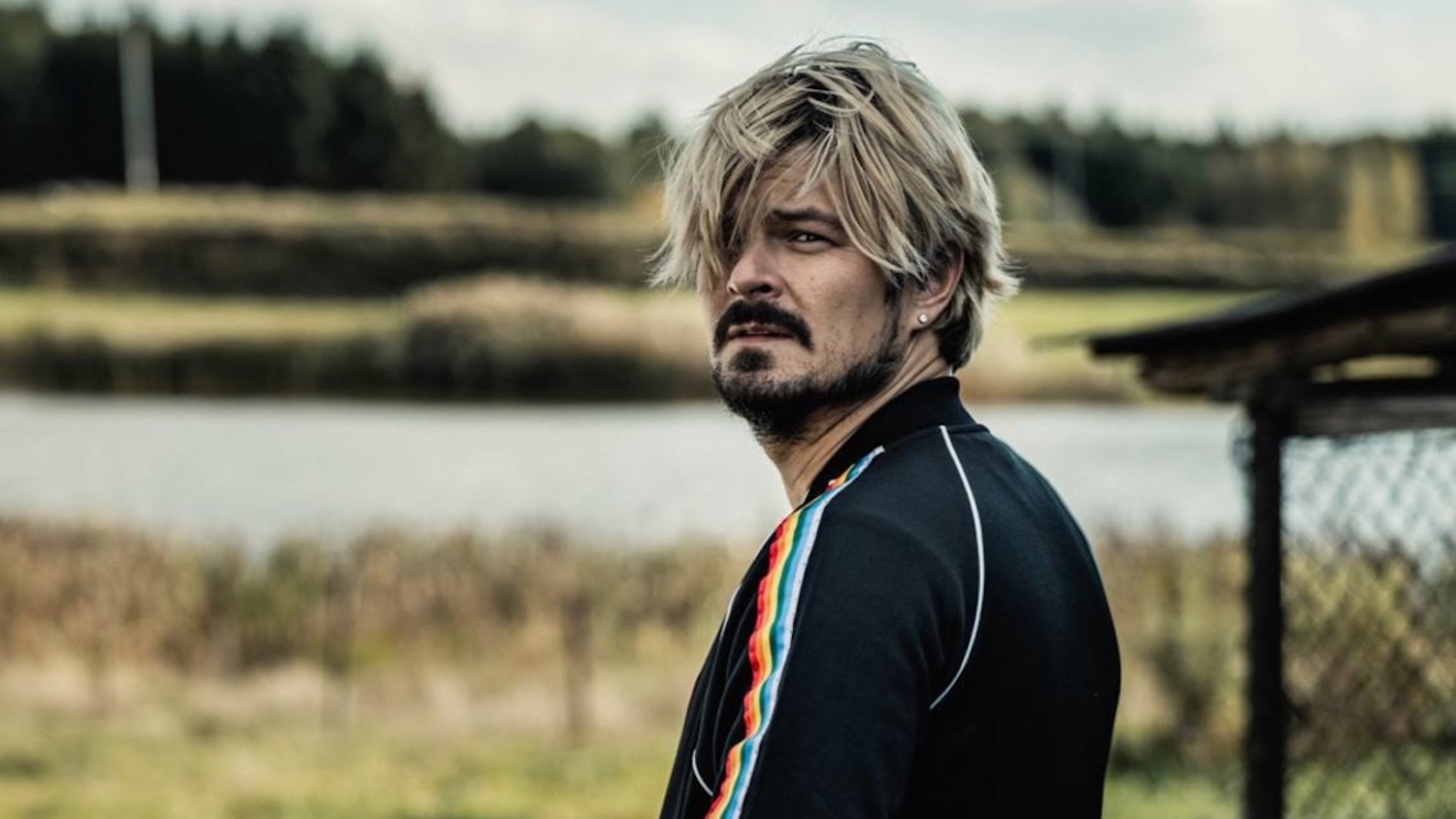
What the four Polish films seem to have in common is a real willingness to confront deep-seated issues in society in a way that seems both accessible — with nothing truly off-putting for the average viewer — and psychologically rich. While some, such as Woman on the Roof, succeeded better than others (All Our Fears), experiencing an unexpectedly Polish-heavy line-up at Cottbus never felt exhaustive, but merely an introduction to a wonderful film scene. Perhaps a good rule to remember: if you ever see the Polish Film Institute logo before a film, chances are you’re in for something halfway decent. Probably.
I’m finishing up this unexpectedly long two-day, two-part Cottbus article back on the train to Berlin. The two cities are remarkably close to one another with a regionalbahn once an hour. I’ve missed the metropolis (mostly the pizza), but it’s safe to say that this festival is no mere regional satellite: in my estimation, its survey of the more-neglected half of Europe makes it one of the most satisfying, intellectually stimulating, politically-demanding festivals I’ve ever been to. Maybe I’ll try three days next time.
Redmond is the editor-in-chief of Journey Into Cinema.
